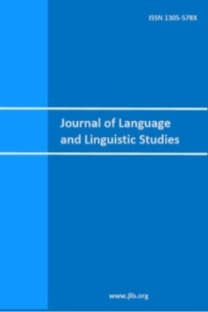The Effect of Type of Context on EFL Learners' Recognition and Production of Colligations
Öz
The present study investigated the effect of type of context (single sentence vs. paragraph) on the learning of English colligations. For this purpose, 23 Iranian EF learners in three intact classes participated in the study. Two sets of colligations (adjective+ preposition and preposition+ noun) were selected to be included in the study and the classes were randomly assigned to one control and two experimental groups. The control group (CG) received the colligations in a list, experimental group 1 (EG1) received each colligation in a single sentence, and experimental group 2 (EG2) received the same colligations in paragraphs of four to five lines. Two tests (a multiple- choice and a fill-in-the-blank) were administered to investigate the effect of type of context on the learners’ recognition and production of the colligations. A one-way ANOVA and a post hoc Scheffe test were run to analyze the data. The results revealed that the participants in the paragraph group (EG2) significantly outperformed the participants in the list group (CG) in terms of both recognition and production. However, there was no significant difference between the performance of the participants in EG1 and EG2 both on recognition and production tests. Besides, the difference in the performance of the participants in EG1 and CG in terms of recognition and production was not significant, either. It was concluded that contextualization would maximize learning and that a single sentence context would not serve a good definition of context.
